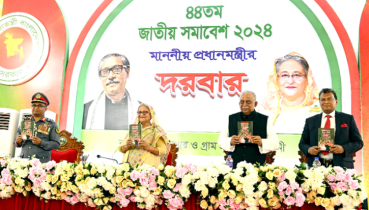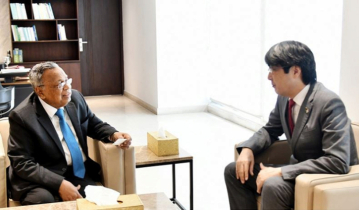
In recent years, the global market for halal products and services has witnessed significant growth, driven by an increasing awareness and demand among Muslim consumers. Bangladesh, with its predominantly Muslim population, has recognized the potential of the halal industry and is actively working towards meeting international halal standards and certification requirements. Halal certified products and services become a consumer priority sought and preferred not only by Muslims but also by all mankind due to being halal as well as clean and healthy. and thus, the market of halal products and services continues to expand day by day. Therefore, it is important to establish a reliable halal certification system operating at the global level for the consumer to trust the halal products and services free from technical barriers.
Since halal certification is concerned with religious and quality matters, untrustworthy halal certificates are
confusing for the consumers, the importers, and the public authorities, and those certificates do not have
sufficient reliability in the eyes of all these actors of international trade. Unfortunately, due to the various concerns of the countries in halal conformity
assessment, a harmonized halal certification system has not been established for a long time. Joint action of Islamic countries is vital for establishment of a halal
certification system to establish consumer confidence and avoid technical barrier to international trade. Therefore, Businessmen who are interested in exporting to the markets that demand halal products and services need to pay special attention to obtaining trustworthy halal certificates. This stays valid for exporting to or investing in not only Islamic countries but also to the whole world.
International halal standards are established to provide a uniform and recognized set of guidelines for the
production and certification of halal products and
services worldwide. These standards are crucial not only for meeting the expectations of Muslim consumers but also for facilitating international trade and ensuring transparency in the halal supply chain. Besides, the
certification process is a critical component of the
international halal standards framework. Businesses seeking to market their products as halal must undergo a rigorous evaluation to ensure compliance with the established standards. Formation of a trustable system for the multilateral recognition of halal certificates is a kind a solution. It relies on accreditation mechanism according to the standards issued by the Standards and Metrology Institute for Islamic Countries (SMIIC), an affiliated institution of Organization of Islamic Cooperation (OIC). Halal trade is guaranteed with halal certification, Halal certification is guaranteed with halal accreditation. Halal accreditation is valuable with
global recognition!
The anticipated growth of the global Muslim population to 2.2 billion by 2030 underscores the increasing
significance of the halal industry on a global scale. With the current global Islamic market valued at around $2 trillion, constituting 10.6% of the world's expenditure, the economic impact of halal products and services is substantial and expected to expand significantly in the coming years.
According to Transparency Market Research, the global halal product market is projected to experience
remarkable growth, reaching an estimated value of $10.51 trillion by 2024. This robust forecast indicates a growing demand for halal products beyond traditional markets, reflecting the increasing awareness and
preference for halal-certified items across diverse
consumer demographics.
The Halal food market, specifically, is set to register a 6.1% compound annual growth rate in terms of revenue over the next five years, according to the same source. This growth trajectory highlights the sustained and widespread appeal of halal food, driven not only by
religious considerations but also by a broader audience attracted to the safety, hygiene, and quality assurance features associated with halal products.
The popularity of Halal food is extending beyond Muslim-majority countries, with non-Muslim
populations worldwide embracing these products. The emphasis on safety and quality assurance has
contributed to a surge in demand for halal food
products. This trend presents a valuable opportunity for exporting countries, including Bangladesh, to diversify their export portfolios. By capitalizing on the rising global demand for halal food. countries can enhance their
economic resilience and explore new avenues for trade.
The reality is that many of the products exported to Islamic countries are produced in non Islamic countries; for example, 85% of imported meat and live animals are imported from non-OIC countries (Thomson Reuters, 2014). Several non-Muslim countries, such as Brazil, India, USA, Russia, and China have positioned
themselves as leading suppliers in the global halal
market. Their success underscores the inclusive nature of the halal industry, where countries with diverse
populations can play a pivotal role in meeting the
global demand for halal products and services.
The global halal market is expanding rapidly,
presenting a significant opportunity for Bangladesh to tap into this lucrative industry. By adhering to
international halal standards, Bangladeshi businesses can not only cater to the needs of the country's large Muslim population but also position themselves as
reliable suppliers in the global halal market. The export potential of halal items from Bangladesh extends beyond traditional food products to include
pharmaceuticals, cosmetics, halal tourism services, halal finance, halal supply chain and even halal consultancy. The recognition of Bangladesh as a halal-compliant
destination can attract Muslim tourists, further boosting the country's economy, Bangladesh has huge potential to export halal products globally, especially to acquire a sizeable market share of halal meat in the Middle Eastern countries-one of the major markets of the
product, in particular. The success of the agricultural and livestock sector of Bangladesh is a testament of the untapped potentials for the halal food items. Bangladesh has made a tremendous growth in every sector of the economy especially in agricultural including livestock production in the last decade.
It appears that Bangladesh is a strategic location for
agricultural products that may lead to export of value added products creating huge employment. As one of the world's largest livestock population, Bangladesh has the potential to turn meat export into a vibrant,
self-sustaining and highly attractive enterprise. Other sectors related to non-food including toiletries,
pharmaceutical have the potentials for export.
While the potential for halal exports from Bangladesh is immense, there are challenges that businesses must
navigate. These include ensuring consistent adherence to halal standards, accreditation, certification, addressing logistical issues in the supply chain, and staying
updated on evolving international requirements.
The government, in collaboration with industry stakeholders, can play a crucial role in overcoming these challenges. By providing support in terms of infrastructure, training, and regulatory frameworks, Bangladesh can enhance its position in the global halal market.
Conclusion:
The halal industry presents a promising avenue for economic growth in Bangladesh. By aligning with international halal standards and obtaining proper certification, businesses in the country can tap into the vast global market for halal products and services. With the right support from the government and industry stakeholders, Bangladesh has the potential to become a significant player in the international halal trade, contributing to economic development and fostering a positive global image, in the context challenges stemming from graduation from LDC and limited export basket.
The writer of this article is a Chief Executive Officer, BFTI (Former Senior Secretary, Ministry of Commerce), His article was reprint from the book of '28th Dhaka International Trade Fair(DITF)2024'

.png)



